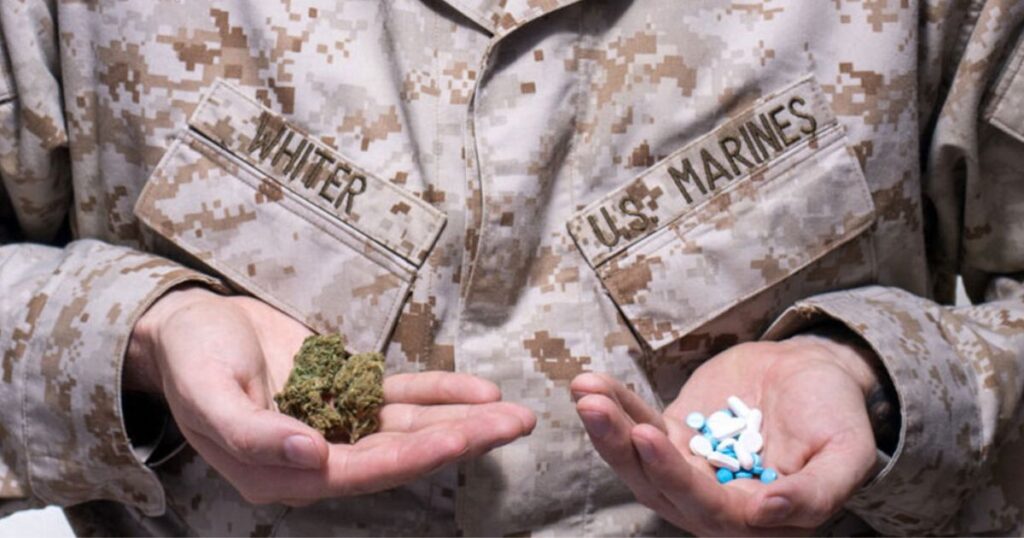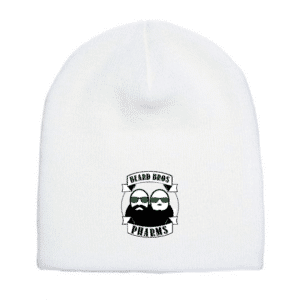Check out Part 1 of this series The Great Cannabis Reclassification Debate: Who Really Wins?
There’s something about cannabis that science still hasn’t boxed in—and maybe that’s the point.
You can’t capture it in a beaker, bottle it like a pill, or reduce it to a single compound on a spreadsheet. Cannabis doesn’t play that game. It’s not one molecule; it’s a living plant. A botanical with history, culture, and chemistry that all work together in harmony.
But right now, under U.S. federal law, cannabis sits in Schedule I of the Controlled Substances Act—in the same category as heroin. That’s the government saying it’s dangerous, addictive, and has “no accepted medical use.”
Tell that to the millions of people who use cannabis every day to manage pain, anxiety, epilepsy, PTSD, nausea, and insomnia—and do it safely. Tell that to the parents who’ve watched CBD stop their child’s seizures, or the veterans who can finally sleep through the night without a handful of pills.
The truth is simple: cannabis isn’t a drug in the way lawmakers still pretend it is. It’s a plant. And that distinction matters.
The Botanical Reality
In the natural world, medicine doesn’t always come from a lab. Humans have always turned to plants for healing. From turmeric to echinacea, valerian root to St. John’s wort, nature has been the original pharmacy long before Big Pharma took over.
Cannabis fits squarely into that lineage. It’s a botanical medicine with hundreds of active compounds—cannabinoids, terpenes, flavonoids, and other plant molecules—that interact with each other to produce the plant’s therapeutic effects. Scientists call that interaction the entourage effect.
That synergy is what makes cannabis special. It’s why isolated THC pills don’t feel the same as smoking flower or taking a full-spectrum extract. When you pull one molecule out of a symphony, you lose the song.
And yet, the federal government continues to treat cannabis like a single-molecule synthetic pharmaceutical—something to regulate, patent, and prescribe. That thinking doesn’t just miss the mark; it distorts the entire nature of the plant.
Why Descheduling Is the Only Path Forward
Rescheduling cannabis—say, moving it down to Schedule III—might look like progress on paper, but it still keeps cannabis chained to the DEA and the Controlled Substances Act. That means researchers still need special permission to study it, cannabis businesses still face banking barriers, and patients still get treated like they’re doing something wrong.
If the goal is to move forward, cannabis has to be descheduled. Not moved to a different schedule. Not renamed. Not boxed into another bureaucratic corner.
Descheduled.
That would put cannabis where it belongs: alongside other regulated botanicals like tobacco and alcohol. Not because those are harmless, but because we recognize that prohibition doesn’t work—and that people deserve access, education, and choice.
Descheduling would:
- Allow real scientific research to flourish.
- Normalize patient access across all 50 states.
- Open the doors to fair commerce and banking for small businesses.
- Finally end the contradiction of “legal” state cannabis and “illegal” federal cannabis.
In other words, descheduling would take cannabis out of the shadows and let it exist in the light, where it belongs.
The Tobacco Example: A Botanical with Bigger Risks
Here’s a reality check: tobacco is also a botanical. It’s psychoactive, addictive, and deadly. Nicotine kills hundreds of thousands of Americans every year. Yet tobacco isn’t part of the Controlled Substances Act. You can grow it, sell it, and smoke it. The government regulates and taxes it—but it doesn’t treat it like contraband.
Meanwhile, cannabis—arguably safer than caffeine—remains a Schedule I drug.
That double standard says everything you need to know about how politics, not science, drives drug policy in this country.
If tobacco can exist outside the Controlled Substances Act despite its well-documented harms, then cannabis—a plant with proven medical value and virtually no overdose risk—should have been descheduled decades ago.
The comparison isn’t perfect, but it’s powerful. It shows how inconsistent and outdated the federal system has become.
Isolates and Synthetics: Keep Those Scheduled
To be clear, not all cannabis-derived products are created equal. There’s a big difference between the plant itself and the isolated compounds pulled from it in a lab.
“The hybrid approach would be the best of both worlds, not only for preserving tax revenue and product access, but also using current FDA regulatory mechanisms for alcohol and pharmaceuticals respectively.” – Jeff Wu, Xylem Robotics Founder & CTO
Pure THC isolates, synthetic cannabinoids, and lab-made analogs like dronabinol (Marinol) operate much more like traditional pharmaceuticals. They can and should be regulated within the pharmaceutical system—Schedule III makes sense for those.
That framework allows doctors to prescribe isolated cannabinoids with proper oversight, while freeing the whole plant from unnecessary control.
It’s a balanced approach that would make the plant accessible, like tobacco or herbal supplements, while keeping lab-made compounds under medical regulation. This two-tier system respects both science and common sense.

A Matter of Fairness and Freedom
Descheduling isn’t just about semantics. It’s about who gets to participate in the future of cannabis.
Right now, big pharmaceutical companies are drooling over the idea of a rescheduled cannabis market where only FDA-approved, lab-isolated compounds are allowed. That’s not reform—that’s monopoly.
Descheduling, on the other hand, opens the door for everyone: cultivators, caregivers, small brands, and patients. It allows cannabis to stay true to its roots—literally and figuratively—as a plant for the people.
And let’s not forget the human cost of keeping it illegal. Descheduling would mean fewer arrests, fewer ruined lives, and a real shot at repairing decades of damage done by the war on cannabis. It’s about freedom, fairness, and healing—both personal and social.
The Science Is Already There
For anyone still clinging to the “we need more research” excuse, here’s the truth: we already have mountains of data. The National Academies of Sciences have acknowledged cannabis’s medical benefits. The FDA has approved multiple cannabinoid-based drugs. The research exists—it’s just been throttled by decades of bad policy.
Every new study reinforces what millions of people already know: whole-plant cannabis is medicine.

Let’s Be Honest: The System’s Broken
The Controlled Substances Act was written in 1970, in a time when cannabis was demonized and misunderstood. Half a century later, the landscape has changed completely—but the law hasn’t caught up.
Descheduling is the only move that truly aligns with reality. It acknowledges cannabis for what it is: a natural, low-risk, highly beneficial botanical that deserves the same treatment as other regulated plants.
Keeping cannabis on the schedule—even as Schedule III—means the government still doesn’t get it. It means continuing to criminalize people for a plant that’s safer than alcohol.
The Path Forward To Free the Plant
Here’s the framework that actually makes sense:
- Deschedule whole-plant cannabis. Let states regulate it like tobacco or alcohol, focusing on safety, quality, and access—not punishment.
- Keep isolates and synthetics in Schedule III. Maintain oversight of lab-made products that behave like traditional drugs.
- Support education and research. With the plant descheduled, universities and scientists can finally study cannabis without DEA red tape.
That’s not radical—it’s rational.
The debate over rescheduling vs. descheduling isn’t about technicalities—it’s about philosophy. It’s about whether we see cannabis as a dangerous chemical or a natural, healing plant.
If the government wants to make real progress, it needs to stop splitting hairs and start acknowledging the truth. Cannabis isn’t heroin. It’s not meth. It’s not even in the same conversation.
Cannabis is a botanical, just like tobacco—but with the power to heal instead of harm.
So let’s stop pretending it belongs on a schedule made for synthetic drugs. Let’s deschedule cannabis, regulate it with respect, and finally move forward.
Because you can’t schedule nature—and you shouldn’t try.
Feature Image provided by Mike Whiter
- Broad Spectrum vs. Full Spectrum vs. Isolate: Which CBD is Right for You?
- A Journey from Small Farms to Big Players and Why Cannabis Descheduling Matters
- Democrats Push for Swift Cannabis Descheduling
- Deschedule Not Reschedule Rally Dec 2nd
- Why Descheduling Cannabis is the Only Real Solution for America
Related Products
-
Beard Bros Logo- Hat
$29.99 -
Beard Bros Logo- Light Sweatshirt
$49.99 -
Beard Bros Logo- Long Sleeve T-Shirt
$34.99 -
Beard Bros Logo- Skullcap
$24.99




















